New Thought, New Translation – Gulbenkian & Newmag Book Forum on March 27 & 28
03/21/2025
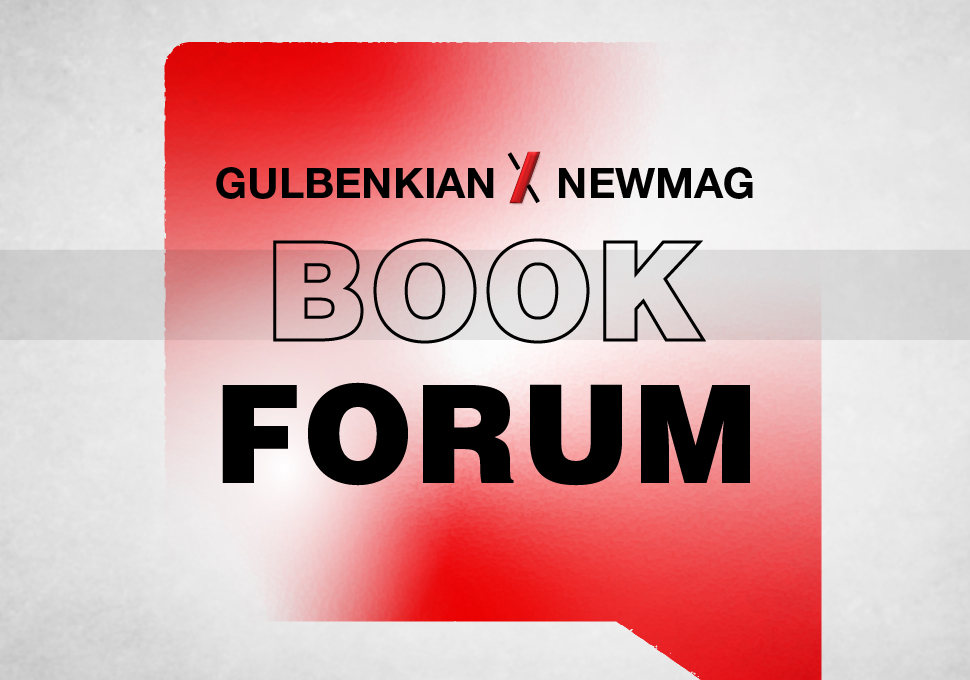
A major literary event is coming to Armenia. The two-day “New Thought, New Translation” book forum, organized by the Calouste Gulbenkian Foundation and Newmag Publishing House, will take place on March 27–28 at the Holiday Inn Yerevan (Armavir Hall, 2 Amiryan Street).
The forum will feature five book presentations, panel discussions, keynote speeches, and literary meetings, bringing together international experts, political analysts, translators, and psychologists.
Day One: Trauma and Resilience
The first day of the conference will focus on the complexities of the human psyche, psychological trauma, and resilience.
Presentation of "The Body Keeps the Score" (March 27, 6:00 PM)
The event will open with the presentation of “The Body Keeps the Score” by Bessel van der Kolk, a groundbreaking work on the impact of trauma on the mind and body. Now available in Armenian, this bestseller offers deep insights into how trauma reshapes our perception of the world.
Panel Discussion: Surviving Trauma (March 27, 7:00 PM)
Following the presentation, a panel discussion will explore the process of overcoming trauma, drawing on two powerful books:
- “The Year of Magical Thinking” by Joan Didion – a deeply personal reflection on grief, loss, and mourning after the death of her husband and the illness of her daughter.
- “Every Family Has a Story” by Julia Samuel – an exploration of intergenerational trauma and how emotional wounds are passed down through families.
The evening will conclude with a special address by Razmik Panossian, Head of the Armenian Communities Department of the Calouste Gulbenkian Foundation.
Day Two: The World and Us
The second day of the conference will focus on historical narratives, cultural perceptions, and geopolitical conflicts.
Presentation of "Orientalism" (March 28, 6:00 PM)
For the first time in nearly 50 years, Edward Said’s “Orientalism” has been translated into Armenian. This foundational work of postcolonial studies analyzes how the West perceives and represents the East, uncovering deep-seated biases that have shaped global politics and cultural narratives.
Presentation of "Broken Shield" (March 28, 7:00 PM)
The forum will close with the presentation of “Broken Shield”, the first in-depth analysis of the 44-day war. Featuring insights from Armenian and international experts, the book examines the causes, consequences, and strategic lessons of the Artsakh conflict.
International Participation
The conference will feature:
- Special guests from abroad
- A delegation from Portugal
- Political scientists and international experts
- Translators, literary figures, and psychologists
Event Details
New Thought, New Translation – The Gulbenkian & Newmag Book Forum
- Holiday Inn Yerevan (2 Amiryan Street)
- March 27–28
- Admission is free
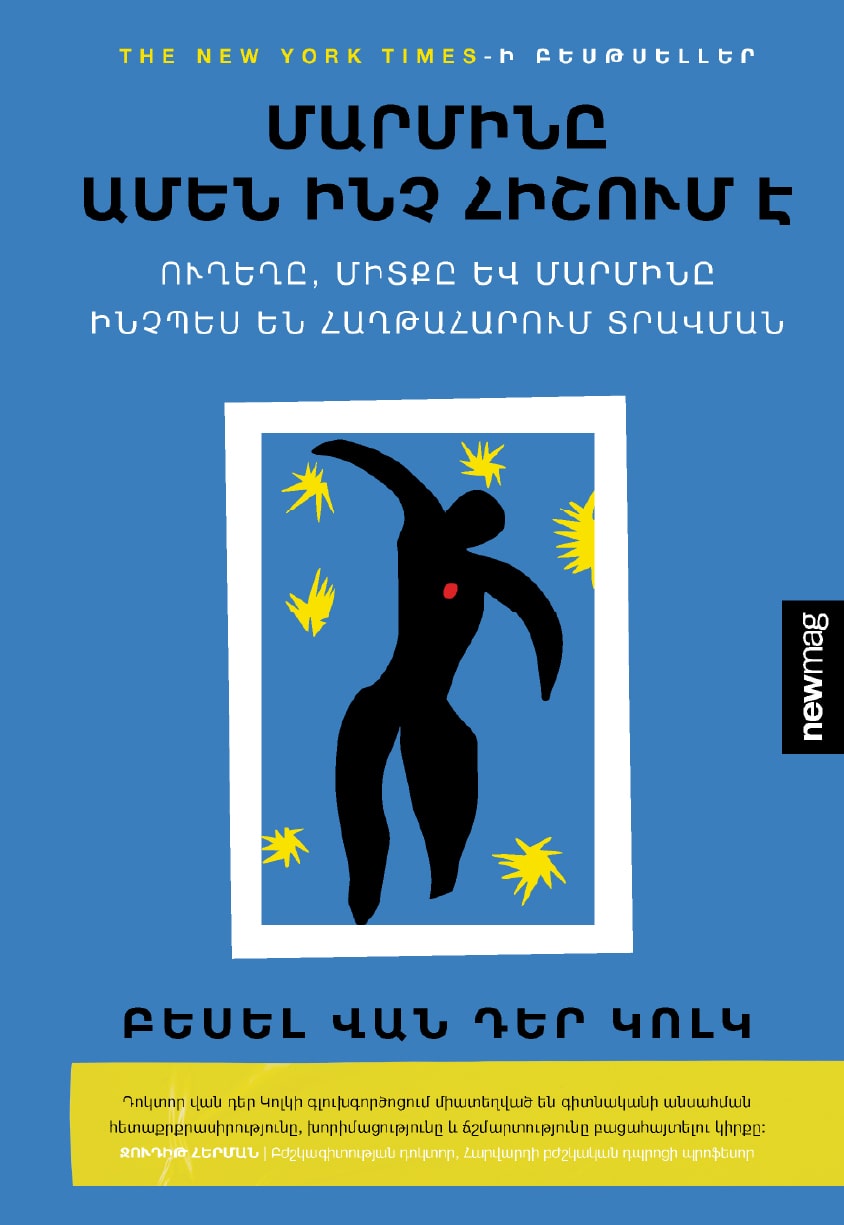
Bessel van der Kolk
7800 ֏
Description
Trauma radically changes the structure of the human brain, disrupts the delicate balance of the nervous system and the body's physiological reactions. In his bestselling work, world-renowned psychiatrist Besselvan der Kolk explains why painful memories are not forgotten, how they manifest in the form of physical and emotional problems, and how to overcome their consequences. Through true stories and scientific research, the author presents innovative therapeutic approaches that will help each reader restore mental and physical balance.
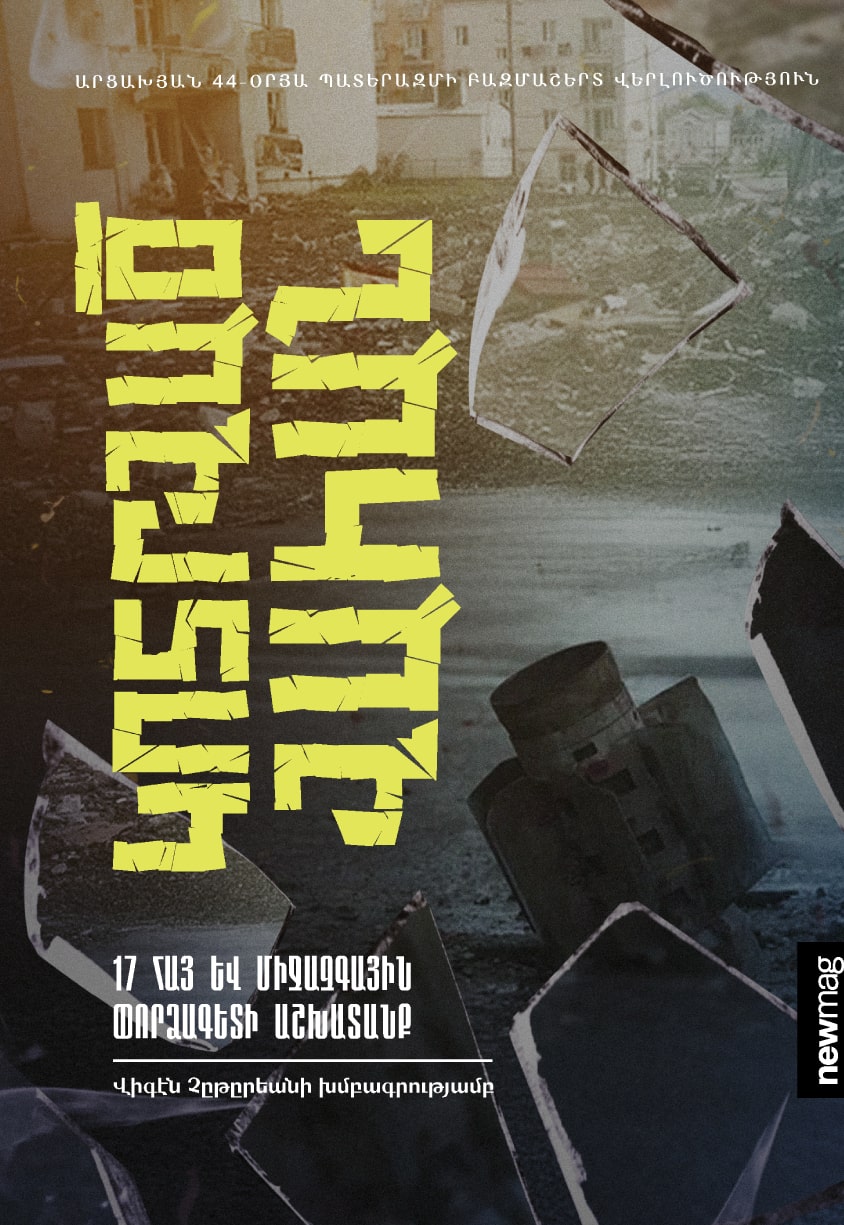
Vicken Cheterian
7800 ֏
Description
This book is a collection of 16 articles on the 2020 Karabakh War, the diplomacy leading up to it, geopolitics, entrenched notions, the arms race and military reforms or lack thereof, and social and domestic political developments in Armenia and Azerbaijan. 17 Armenian and foreign authors examine Armenia’s defeat in the 2020 war, the events and developments that preceded it. The research and publication of this book was funded by the Calouste Gulbenkian Foundation.
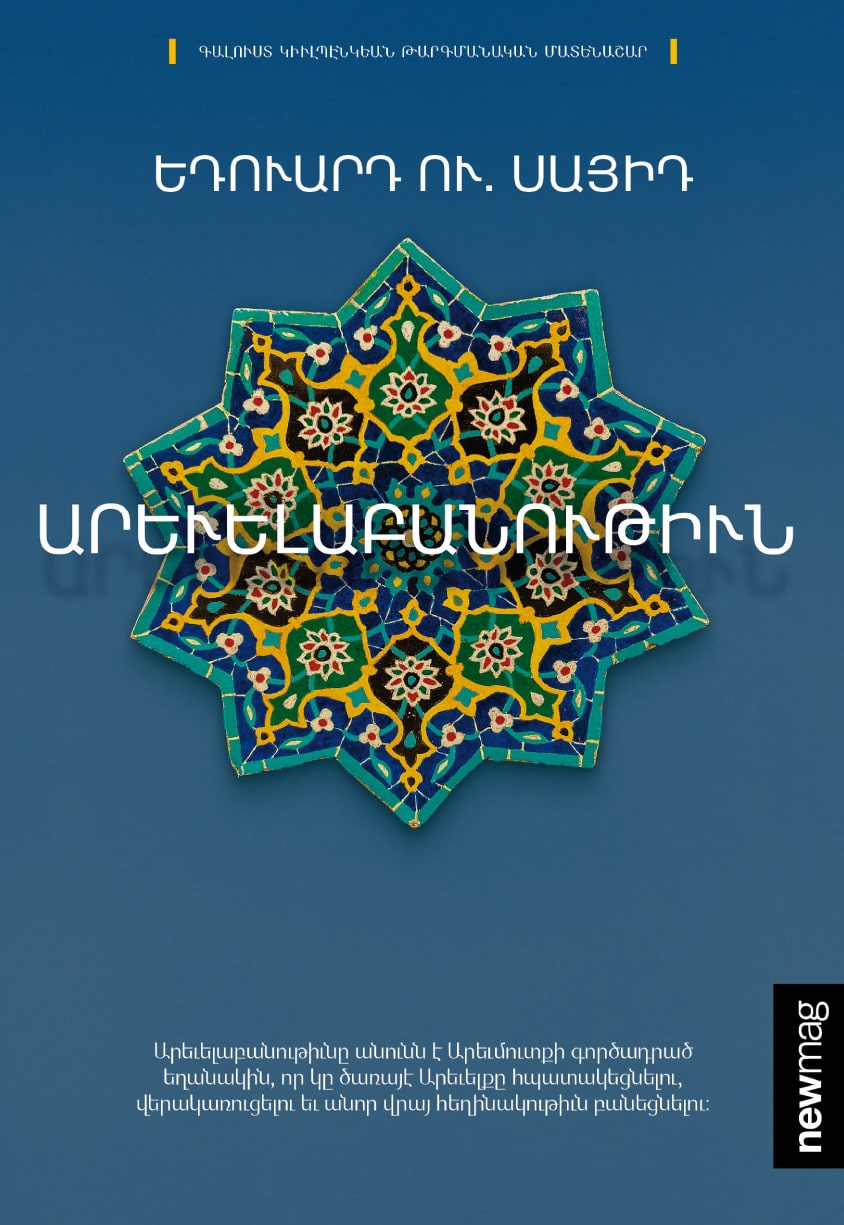
Edward W. Said
8800 ֏
Description
In this extensive, intellectually influential study, Said presents the history of Orientalism. The West, which had long dominated the Near and Middle East, viewed the East from a superior position. The East was called the “Orient” in the West, that is, “Other” in the West. This perspective continues to be entrenched in the West, and, since the West has not allowed the East to present itself, it also inhibits attempts to fully understand the East.
This groundbreaking book, first published in 1978, remains one of the most influential studies in social science, especially in the fields of ethnography and postcolonial studies. Said was critical of the concept of “Orientalism,” which he considered to be a set of false assumptions of the West about the East.
This Throughout the book, Said presents “the Eurocentric prejudice against Arab-Islamic peoples and cultures.” He shows that the false and romantic perception of Asia and the Middle East, rooted in Western culture, served as a justification for the colonial and imperial ambitions of Europe and the United States.
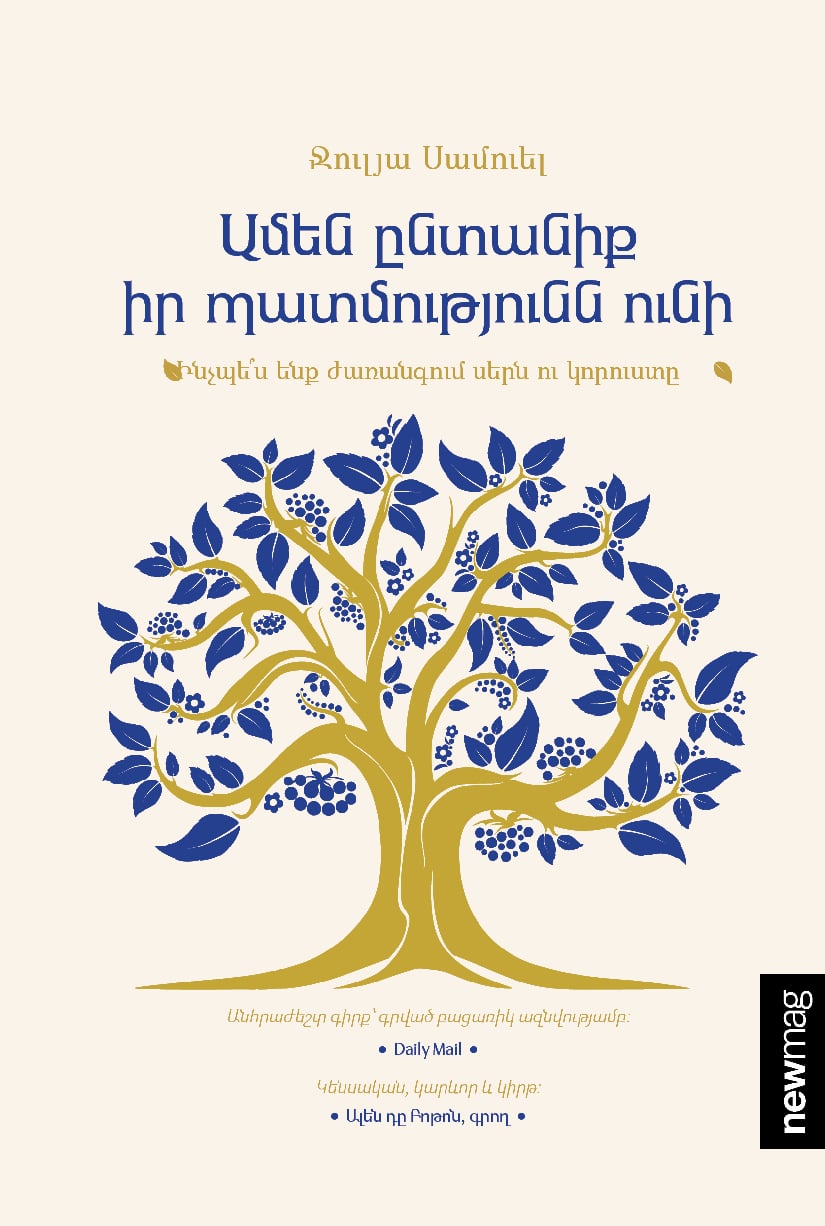
Julia Samuel
6800 ֏
Description
Why do some families thrive in adversity while others fragment? How can families weather difficult transitions together? Why do our families so often exasperate us? And how can even small changes greatly improve our relationships?
In Every Family Has a Story, bestselling psychotherapist Julia Samuel turns from her acclaimed work with individuals to draw on her sessions with a wide variety of families, across multiple generations. Through eight beautifully told and insightful case studies, she analyzes a range of common issues, from loss to leaving home, and from separation to step-relationships, and shows how much is, in fact, inherited—and how much can be healed when it is faced together. Exploring the relationships that both touch us most and hurt us most, including the often under-appreciated impact of grandparents and siblings, and incorporating the latest academic research, she offers wisdom that is applicable to us all. Her twelve touchstones for family well-being—from fighting productively to making time for rituals—provide us with the tools to improve our relationships, and to create the families we wish for. This is a moving and reassuring meditation that, amid trauma and hardship, tells unforgettable stories of forgiveness, hope and love.
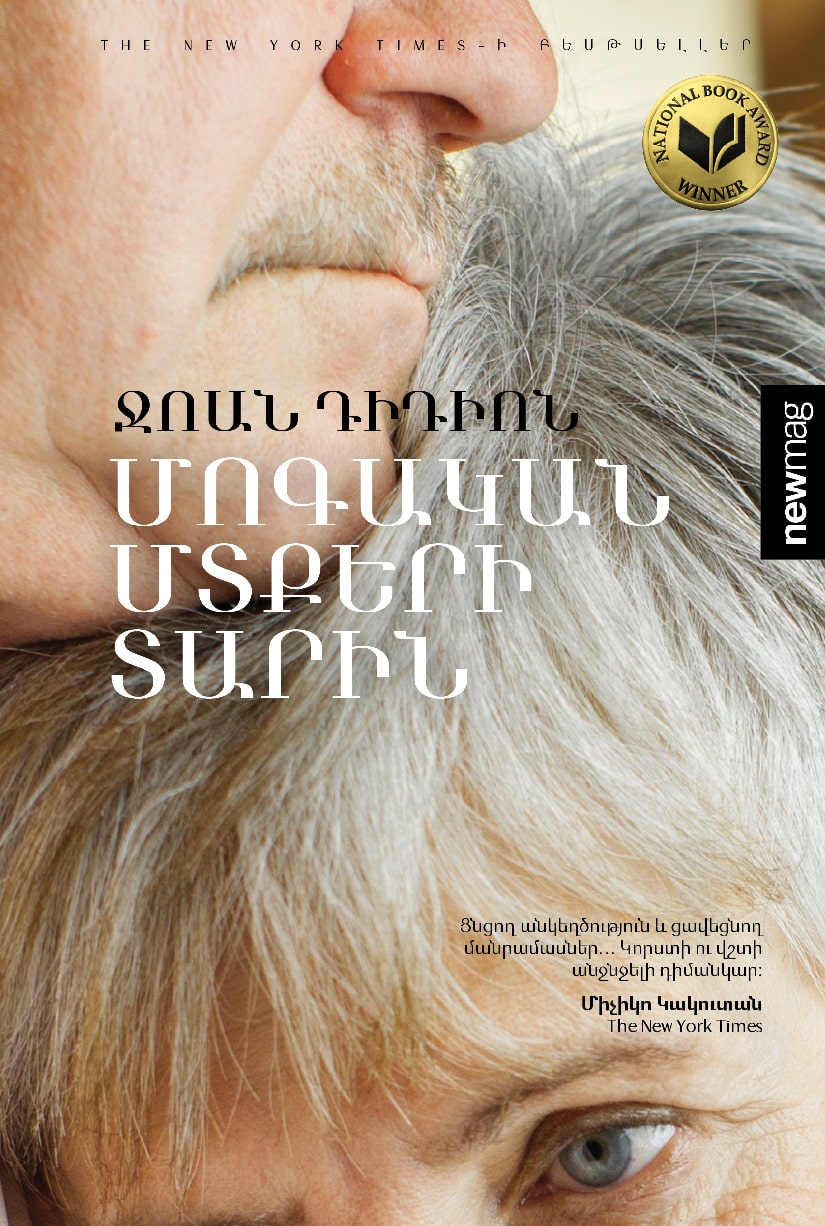
Joan Didion
5800 ֏
Description
In this book, Joan Didion tells the story of the most difficult year of her life. A year when her husband, writer John Gregory Dunne, with whom she had lived for more than 40 years, suddenly passed away. The book is a moving memoir about the author's grief, about overcoming loss, understanding what happened, and about the signs that, if noticed, might have prevented it. The author immerses herself in the disorienting and surrealistic experience of loss, reflecting on the rituals and memories that shape our understanding of life and death. The memoir is not only a story of personal tragedy but also a study of grief, resilience, and the power of the human spirit.
Read also

Winterfest to feature David Georgyan’s sci-fi action novel Impedance (trailer)

At Winterfest 2026, Newmag will present Marianna Hakobyan’s “Don’t Change the Names” (trailer)

Closing and Award Ceremony of the “Sprout in Armenian – 2025” Competition at Newmag Winterfest

“I hope my story will inspire many and help them keep believing and dreaming.” Henrikh Mkhitaryan’s welcoming speech to Armenian fans (video)

